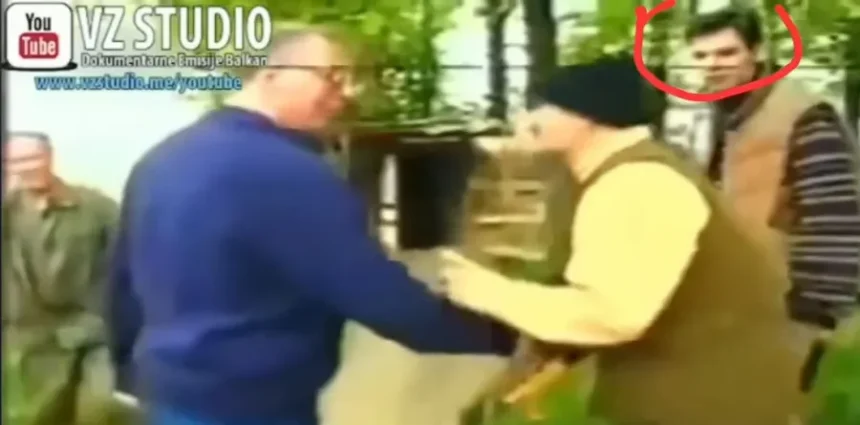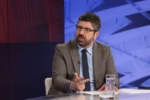A chilling chapter of the Bosnian War has resurfaced as Italian prosecutors launch a criminal investigation into the so-called “Sniper Safari”, a gruesome campaign of recreational killings of civilians in besieged Sarajevo (1992–1996) allegedly orchestrated by units loyal to Radovan Karadžić and Ratko Mladić.
The case gained renewed attention after Serbian lawyer Čedomir Stojković published disturbing wartime images appearing to show Aleksandar Vučić, now President of Serbia, holding a sniper rifle in the hills overlooking Sarajevo — the same positions from which Serbian forces targeted and killed civilians during the city’s siege.
Helez’s Allegations and the Evidence Mounting
Zukan Helez, Bosnia and Herzegovina’s Minister of Defense, had previously stated that Vučić personally fired upon Sarajevo civilians with a sniper rifle, echoing similar allegations raised by multiple witnesses over the years.
Despite growing international scrutiny, Serbia’s public prosecutor has refused to open any investigation, even as global media outlets continue to publish findings suggesting that the “Sniper Safari” involved wealthy individuals who paid up to €100,000 to participate in “recreational” killings organized by Serbian military personnel.
Stojković, one of the few Serbian voices openly confronting wartime atrocities, criticized the silence of Serbian authorities:
“The rifle seen in Vučić’s hands unmistakably resembles a sniper weapon. The failure of Serbia’s prosecutors to act raises serious moral and legal questions,” he said, referring to the growing body of visual and testimonial evidence.
Italian Prosecutors Take Action
The Milan Public Prosecutor’s Office has officially opened a war crimes investigation into the alleged “Sniper Safari.” The case was initiated following a formal complaint by Italian journalist Ezio Gavazzeni, who described the killings as a “human hunt” carried out by “wealthy men passionate about weapons”, who paid to shoot unarmed civilians from Serbian positions surrounding the Bosnian capital.
Gavazzeni’s 17-page dossier, submitted to prosecutors earlier this year, includes the testimony of a Bosnian military intelligence officer and statements from Benjamina Karić, former Mayor of Sarajevo. The investigation is being led by Italian anti-terrorism prosecutor Alessandro Gobbis, with charges under consideration including murder and crimes against humanity.
“These were not acts of war, but premeditated killings driven by sadism and profit,” said one investigator familiar with the case.
A Brutal Legacy Revisited
The “Sniper Safari” scandal is reviving painful memories of the four-year siege of Sarajevo, during which more than 11,000 civilians were killed, including over 1,600 children.
Historical footage shows that Russian nationalist writer Eduard Limonov also participated in sniper attacks during the siege, accompanied by Radovan Karadžić, who was later convicted of genocide by the International Criminal Tribunal in The Hague.
Now, as Italian authorities pursue justice across borders, the question remains: will Serbia’s leadership confront its wartime past, or continue shielding figures accused of grave crimes?
For critics like Stojković, the stakes are clear — the rule of law in Serbia is being tested, and President Vučić’s past actions may finally come under international legal scrutiny.





